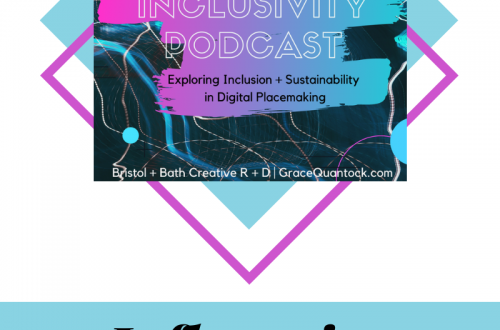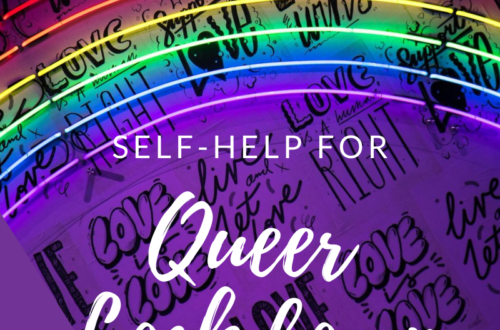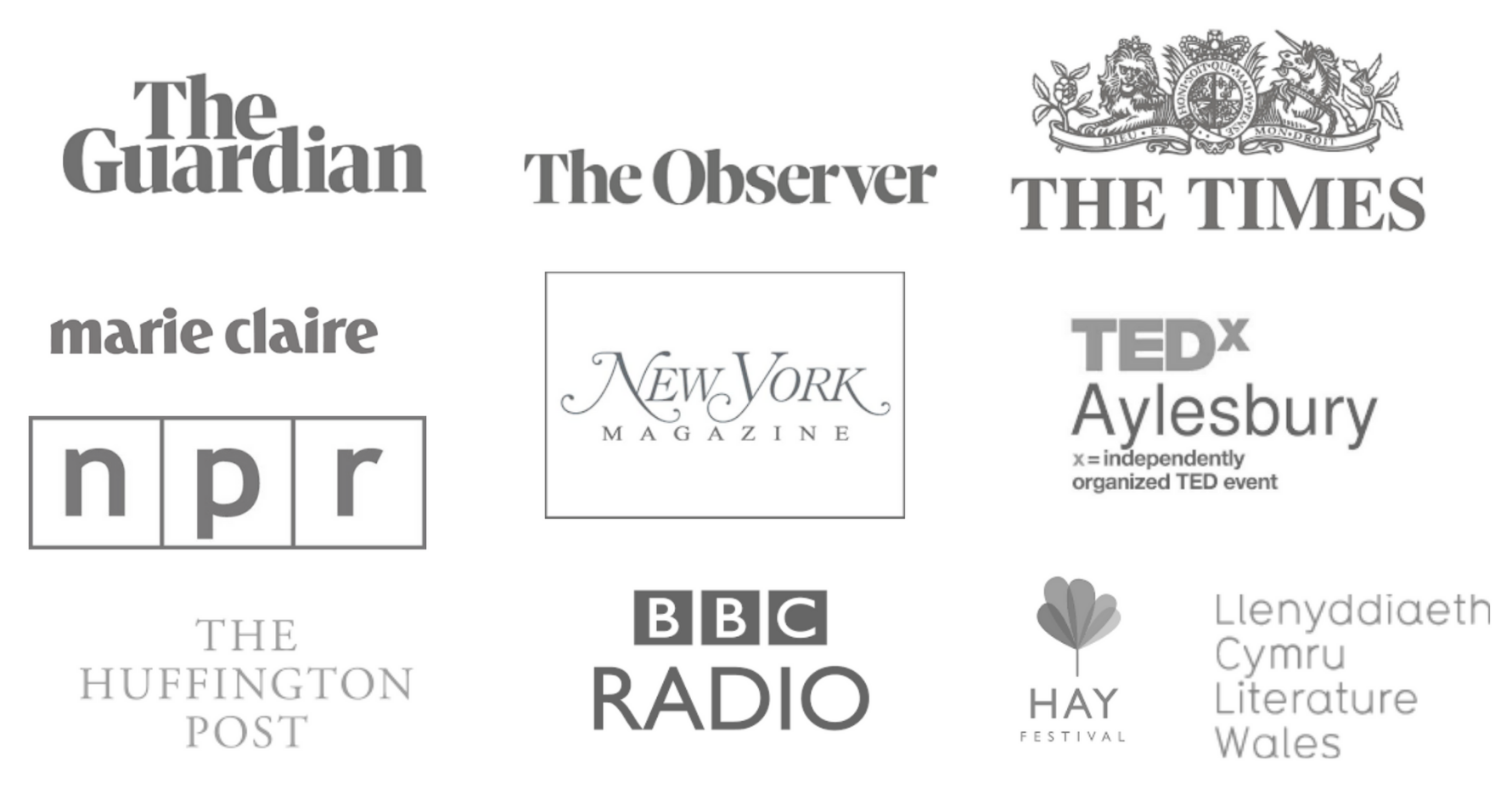Ferguson, The Middle East, Terror and War: How To Cope In Times of Fear
The world can be a scary place. All around us – on the news, billboards, Twitter, the internet, our inboxes, on the lips of neighbours. As our global village gets smaller and our means of interacting with others grows more bountiful, so too do the often frightening realities of others become larger. More vivid. Graphic. Overwhelming. Scary.
And though observing isn’t as difficult as actually living in a war zone, surviving an unfathomable social injustice or experiencing a violent incident, it can trigger anxiety, stress or even depression. When we lose touch with our own reality and self with each manifestation of upset and fear, the effect on our lives can be profound and far-reaching.
How do we cope in a world that can be such a terribly scary place?
Allow yourself to feel it…without falling into it. (Click to Tweet!)
So many of us have spent so long running from fear, that working with it is a foreign concept, even more difficult to consciously practice. And though riding with fear is hard, emotional warrior work, it’s necessary. Running from fear only empowers it, and depletes us, all around.
Don’t run.
Instead when you feel your fear, pause. (If it’s safe, of course!) Just take a moment. It will likely be uncomfortable, but that moment is a valuable one. Ground yourself. Feel your feet. Think of things you know to be true. Good things. Make a list: I love my dog, I am in Wales, I am Grace….
Get more familiar with your fear. Where are its edges? Often, after fear washes over you, listening to it will make the waves more gentle, or attune you to consciousness using your feelings to warn or protect you in a loving way.
After you’ve paused, felt and listened to you fear, just as consciously, move on with your day.
Buffer yourself.
Protect yourself from the things that hurt or impact you negatively. And give yourself permission to let go of any guilt associated with doing so. Forget about what you “should know”, that it’s “wrong” to not be aware of the plight of others as news breaks and developments play themselves out on 24-hour news feeds or other media.
Take a break. For an hour. A day. A week. Whatever works for you.
Stop watching the news. Turn off the radio. Close the laptop. Remember that watching, listening and reading the most does not translate into being the most well-informed (indeed, in this day and age, it can be quite the opposite!)
You may be surprised at the strong reactions from others (both good and bad!) Some may feel your approach is leaving you uninformed, ignorant and without compassion for the world at large. Others may applaud your against-the-grain stance of quality over quantity in a time of unprecedented idea sharing.
Personally, watching the news makes me feel overwhelmed, disempowered and adrenally exhausted. None of that helps me to do good work, which is my mission.
Bottom line: You don’t need to watch the news to make a difference in the world. You can give yourself some space, and fill that space with positive action.
Unite with your community.
Often the world at large seems scary because we feel alone. Reminding ourselves of all the good people we know, the good they do and how you are aligned with them can help immensely.
Generally, positive stories are not deemed nearly so newsworthy as the negative – but that doesn’t mean your own lines of communication should be the same. Use your blog, Twitter and the current social media explosion to create a newsfeed of your own, one that unites your community and promotes positivity. (For a great example, check out Positive News – who make it their business to report only good things.)
Notice the meta-injustice…then work to change it.
Oftentimes, we find ourselves affected so deeply by specific news items because we are profoundly upset by the larger, meta-injustice revealed. The news from Ferguson is more than a story about a young boy being shot; it highlights the meta-injustice of ongoing racism and brutality. One child’s violent death in Syria only further brings to the fore the injustice of war and the absolute need and right of all to enjoy peace and compassion. The news of Russian troops moving into Ukraine may evoke emotion and anger over bullying and resistance.
Take some time to process, and talk your deeper feelings through with someone you trust and respect – a coach, a therapist, even a friend. Dig into what the fear is for you. Then, actively seek out ways you can change things. Whether you become a peace worker, or simply transition to bringing more peace into your everyday life, your actions matter.
Resist the adrenaline drip feed.
In this wellness warrior’s opinion, one of the most insidious aspects of news is its constancy. We feel obliged to seek constant updates because they are there, every single second. And while vicarious traumatization – the “contagious” effect of being traumatised by hearing about or witnessing the trauma of another – is something generally reserved for discussion with therapists and aid workers, it effects us all, and deeply so: full blown PTSD can result from witnessing a trauma as well as from experiencing one.
The all-encompassing way we view the news is what makes it so challenging and potentially damaging: We are privy to frightening situations unfolding from every angle, each report, update, note and opinion. We are hyper-exposed, moment, by moment. Our bodies – and minds – may react as though we are present in the space of the traumatic event, but we are static, removed and – often the most demoralising – feel we can’t do anything about the tragedy.
I asked my own Grandma how she coped in WWII, with so much death, loss and unbearable tragedy. She noted that, though it was terribly difficult, somehow, the news taking weeks to arrive from the front lines made absorbing it easier. This slower pace gave her time between traumas to feel, grieve – truly process – what was happening before being inundated with another event. Now, we are witness to multiple, penetrating tragedies in quick succession, in real time and without the salve of the more organic pacing my Grandmother experienced.
Resist the drip-feed of the always-present media frenzy. Cut back. Limit your viewing to once a day. And then use your extra energy to make change.
Notice what you have in common…then practice kind awareness.
When hurt, we may shut down, and attack those hurting us. Worse still, we may lash out at those who are trying to help. Or, in what may be the most dangerous legacy of feeling wounded, we may employ the self-defense mechanism of shrinking away from the world and others.
It’s easy when we are excluded to turn inward. The ___ are bad. They are wild, and violent. They hate us for believing in ____. We are so much better. We must save ourselves from such thinking….
The problem? Labeling yourself “better”, even inadvertently, only adds further barriers – and the perception that those outside your own circles are somehow “less”.
It’s how outsiders are created, and how we, as outsiders ourselves, can unintentionally exclude those that are “different”. There’s nothing so lonely as being the only one who is “right” or “proper” or “enough”.
When you are shut out or hurt or afraid, how do you react? Do you, however unintentionally, shut out others in retaliation?
He drew a circle that shut me out- Heretic, rebel, a thing to flout. But love and I had the wit to win: We drew a circle and took him in!
Excerpt from “Outwitted”, Edwin Markham
Where are your circles drawn? Who falls in? Who falls out? Who decides the diameter of the circle in the first place?
Very often, it is you.
Practice connecting. Remember:
– We are all human
– We all suffer and don’t want to
– We all breathe
– We all have beating hearts
– We were all once tiny babies with no thoughts of growing up or existing in a world of such terror and violence
Simple connecting exercises can help prevent losing sight of our universal humanity, or demonising sectors of it.
Put the love back in!
Into yourself, that is. Take a mental holiday by focusing on what makes you happy. What do you love? Think about it, for a set time you’ve put aside just for the occasion. What do you positively adore? Enjoy it. Bask in it. Fill your heart up and feel your soul sing.
I’m sending so much love to you at this time, and hope these thoughts are helpful. If so, please share them with those you feel may benefit. And share your own ways to cope in the comments below.






